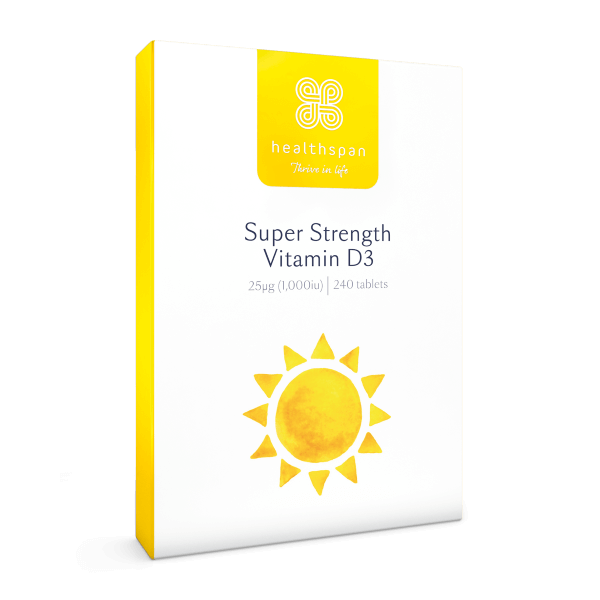You've heard it over and over again by now: in Britain it's difficult to get enough vitamin D during the winter. But what do the experts think?
A nutritionist's perspective: Rob Hobson
Can I just eat plenty of foods rich in vitamin D?
We would always put diet first but getting enough vitamin D from your diet can be a bit tricky simply because of the lack of foods containing this vitamin. The main source of vitamin D is sunlight but in winter we don't get enough sunlight to produce the required amount for vitamin D.
What's also worth bearing in mind is that your body's ability to make use of vitamin D falls by at least half between the ages of 20 - 80 years.
What foods contain vitamin D?
The top 5 foods containing vitamin D are:
- Oily fish (sardine, herring, mackerel, salmon, tuna)
- Liver
- Eggs
- Butter
- Mushrooms
What about fortified foods?
A lot of foods are fortified with vitamin D. Some countries have laws in place whereby certain foods have to be fortified with vitamin D (Sweden is an example because of very short days in the winter). In Britain, certain margarine and cereal products contain added vitamin D, too.
A doctor's perspective
How much vitamin D do you need per day?
The National Institute for Health and Care Excellence (NICE) recommends that all adults in the UK should consider taking a daily supplement containing 400IU (10mcg) of vitamin D throughout the year. The safe daily intake recommended for infants (under one) is 8.5mcg to 10mcg, but those drinking 500ml or more of infant formula do not need supplements, as formula milk is fortified with vitamin D.
Are we really not getting enough vitamin D during winter?
When we say you can't get enough vitamin D during the winter months we really mean it. It's all to do with UVB rays and our skin's reaction with the sunlight that produces vitamin D.
Firstly, there are two different types of vitamin D – vitamin D2 and vitamin D3. You've probably heard a lot more about vitamin D3, because it's effectively vitamin D2's superior sibling. You find vitamin D2 in plants – like mushrooms – and vitamin D3 is always from animal produce, like eggs and oily fish.
Your body has to convert both forms into a more active form, but Vitamin D3 is converted considerably faster than vitamin D2.
The sun's UVB rays have a reaction with the skin that forms inactive vitamin D3; this then has to then be made by the body into an active form of vitamin D.
The problem comes when we don't have access to strong enough UVB rays to make any vitamin D, and the production of vitamin D on the skin only happens when the UV index is greater than 3. Britain has insufficient UV levels for this purpose during the winter, so you need to make sure you get enough vitamin D from your diet and or from a supplement.
What does vitamin D actually do?
Vitamin D regulates levels of calcium and phosphorous, which are needed for healthy bones and teeth. It also activates macrophages; hunter-killer white blood cells in the body's immune defence system.
Research has also shown vitamin D to be helpful against respiratory problems like the common cold – daily or weekly vitamin D supplements halved the risk of respiratory infections in participants with the lowest vitamin D levels.

Super Strength Vitamin D3
For healthy bones, teeth, muscles and immunity
- 25mcg vitamin D per tablet
- Helps keep bones, teeth and muscles healthy, and supports immunity
- Multiple health benefits from 9p a day






